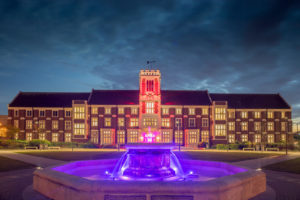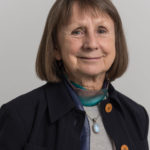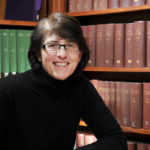
Loughborough University was established in 1909 as a small Technical Institute in the centre of Loughborough town, providing local facilities for further education and offered courses in technical subjects, science and art. It was awarded university status in 1966 in recognition of the excellence achieved by Loughborough College of Advanced Technology and its predecessor colleges. Then called Loughborough University of Technology, it was the country’s first technological university. It was renamed Loughborough University in 1996. The current campus sits in a superb 440-acre site. In 2015, Loughborough opened a second campus on Queen Elizabeth Olympic Park in London. Loughborough University is a Higher Education institution, with 20 academic schools and departments, over 100 research groups, institutes and centres and over 35 professional services teams. During the academic year 2015 – 2016, over 17,500 students matriculated in its undergraduate and post-graduate programmes. Over 2,900 of those students are international, coming from over 100 different countries. Loughborough University employs over 35,000 members of staff, providing a diverse and multicultural environment with over 15% of core employees representing 75 different nationalities. The university holds a bronze award for Athena Swan, which shows its commitment to recruiting, maintaining and promoting women in Science, Technology, Engineering, Medicine and Manufacturing in Higher Education. Loughborough University is ranked amongst the first 13th places in all major UK universities ranking tables (e.g. The Guardian League Table– 4th, The Complete University Guide, 7th, THE Table of Tables – 6th). It has received 7 Queen’s Anniversary Awards for Higher and Further Education and was ranked 1st for Student Experience in the Times Higher Education Student Experience survey.
The School of Science at Loughborough University coheres and develops learning, teaching and research across five Departments: Chemistry, Computer Science, Mathematical Sciences, Mathematics Education and Physics. There is a close synergy between departments of Mathematical Sciences and Mathematics Education. Together they have pioneered Mathematics Support, including drop-in centres to support students who experience difficulties with mathematics across the entire university. Their pioneering work has been taken up widely in higher education, in the UK and internationally, and has won prizes and honours. The teaching and learning of mathematics for mathematicians, scientists and engineers (for large student cohorts (150-250)) is the responsibility of both departments. Increasingly there is a wide diversity in student experience and preparation in mathematics, so a comprehensive provision is challenging and a focus of considerable capital, financial and human.
The Mathematics Education Centre (MEC), one of the largest in the UK, is renowned internationally for its research in Cognitive Studies in Mathematics Education and in Culture, Pedagogy and Identity in Mathematics Education. In the latter it engages in Developmental Research which both studies developmental processes in mathematics teaching and learning and feeds the development. Several projects recently in STEM Education have used inquiry-based approaches to enhance learning and teaching knowledge in practice (including digital competencies). They have disseminated their outcomes to the wider international communities in both teaching and research. Most recently the MEC is engaged in a project to explore student partnerships in task design and tutorial teaching using innovative digital tools. Connected to the Mathematica Learning Support Centres and the MEC, is the Eureka Centre for Mathematical Confidence. Here specialists work on mathematics one to one with students with special needs, with specialisms in dyslexia and dyscalculia which are a focus of research. A recent PhD thesis explored the needs and coping strategies of students with dyscalculia.



